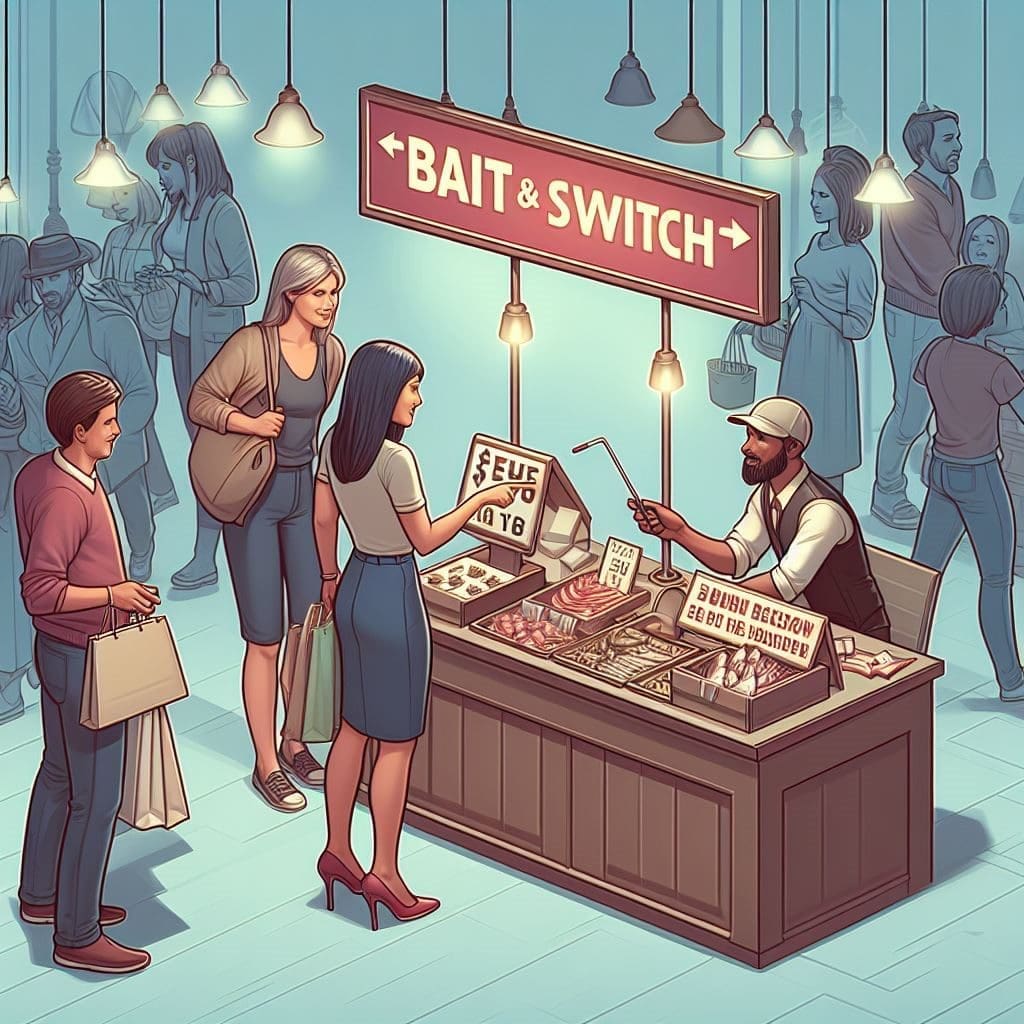Bait and switch is a deceptive marketing practice that has legal implications and can affect consumers negatively. In this article, we will delve into the details of bait and switch, its legal consequences, and how consumers can protect themselves from falling victim to this fraudulent tactic.
What is Bait and Switch?
Bait and switch is a marketing strategy where a seller attracts customers by advertising an enticing offer, often at an unbelievably low price or with irresistible terms. However, the seller has no intention of fulfilling this offer. Instead, they intend to “switch” customers to a different, typically more expensive product or service. This initial offer, referred to as “the bait,” is used to lure consumers in, and the switch occurs when they are persuaded to purchase something different.
Legal Implications of Bait and Switch
Bait and switch is not just a misleading advertising tactic; it has legal consequences. Here are some of the key legal aspects of this practice:
- Common-Law Fraud: Bait and switch can be considered a form of common-law fraud. It involves making false representations to consumers with the intent to deceive them.
- Unjust Enrichment: Sellers who engage in bait and switch often profit unfairly from the deception. Courts may rule that the seller has been unjustly enriched at the expense of consumers.
- Breach of Contract: In some cases, bait and switch can lead to a breach of contract if the seller fails to deliver what was initially promised in the advertisement.
- Legislación sobre protección de los consumidores: Bait and switch is a violation of consumer protection laws. Regulatory bodies like the Federal Trade Commission (FTC) actively monitor and take action against businesses that engage in this practice.
How to Protect Yourself as a Consumer
Consumers need to be vigilant to protect themselves from falling victim to bait and switch. Here are some tips:
- Read the Fine Print: Always read the terms and conditions carefully before making a purchase. If something seems too good to be true, it might be a bait and switch.
- Compare Prices: Compare the advertised price with prices from other reputable sellers. If the deal seems significantly better than others, be cautious.
- Report Suspected Cases: If you suspect a bait and switch, report it to relevant authorities like the FTC. They investigate and take action against deceptive practices.
- Conozca sus derechos: Familiarize yourself with consumer protection laws in your jurisdiction. Understanding your rights can empower you to take action if you encounter deceptive marketing.
- Shop from Reputable Sellers: Stick to well-known and reputable businesses. They are less likely to engage in deceptive practices.
Consumer Awareness and Legal Action
Consumer awareness plays a crucial role in combating bait and switch. By staying informed about your rights and recognizing the signs of deceptive marketing, you can protect yourself and contribute to a fair marketplace. It’s important to remember that bait and switch is not only unethical but also illegal in many jurisdictions.
Legal Recourse for Victims
If you have fallen victim to a bait and switch scheme, you have legal options. You can consult with an attorney who specializes in consumer protection to explore the possibility of legal action against the deceptive seller. Many consumer protection laws are in place to ensure that victims of fraudulent marketing practices receive compensation for their losses.
Conclusión
Bait and switch is a deceptive marketing tactic that can have serious legal consequences for businesses that employ it. As a consumer, being aware of this practice and knowing how to protect yourself is crucial. Always be cautious when you encounter offers that seem too good to be true, and don’t hesitate to report suspected cases to the relevant authorities. By staying informed and vigilant, you can avoid falling victim to bait and switch schemes and contribute to a fair marketplace.
URLs used as sources for the article:
Divulgación: Generative AI creó el artículo

